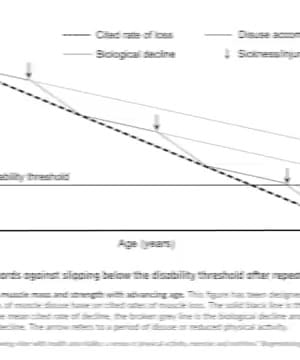How does omega-3 affect skeletal muscle?
Sources:
Omega-3 fatty acids exert several positive effects on skeletal muscle, particularly regarding muscle composition, protein synthesis, and recovery:
-
Modification of Lipid Composition: Omega-3 fatty acids, particularly EPA and DHA, require around four weeks to significantly alter the lipid composition of skeletal muscle. This is crucial because these alterations in the phospholipid membranes can potentially impact muscle function broadly 1.
-
Improved Sensitivity to Amino Acids: Omega-3s have been found to enhance the sensitivity of muscle tissues to amino acids, which is particularly useful during periods of muscle disuse. This increased sensitivity can help to preserve muscle mass even when protein intake is lower than optimal 2 3.
-
Disuse Atrophy Prevention: High-dose omega-3 supplementation (around 4-5 grams per day) has been shown to prevent muscle atrophy due to disuse. This effect has been observed especially in younger adults and has significant implications for older adults or those immobilized, such as patients undergoing surgery or those in ICU settings 4.
-
Enhanced Recovery: Omega-3s can also facilitate quicker recovery of muscle mass and function post-immobilization. This property is particularly beneficial in clinical settings where muscle atrophy and slowed recovery can lead to severe functional impairments 2.
-
Potential Against Cancer Cachexia: There is mixed but promising evidence that omega-3s, particularly EPA, might protect against muscle loss in cancer patients. This effect could also extend to mitigating the muscle-deteriorating impact of chemotherapy 5.
-
Supporting Protein Synthesis: Omega-3 fatty acids might boost muscle protein synthesis, which can become less effective with age. This could be especially beneficial for older adults who are likely to experience both insufficient protein intake and anabolic resistance 6.
In summary, omega-3 fatty acids, through their incorporation into musculoskeletal tissues, enhance amino acid sensitivity, prevent atrophy during periods of disuse, and support muscle recovery and protein synthesis, offering significant potential benefits for maintaining and improving muscle health.
RELATED QUESTIONS-





